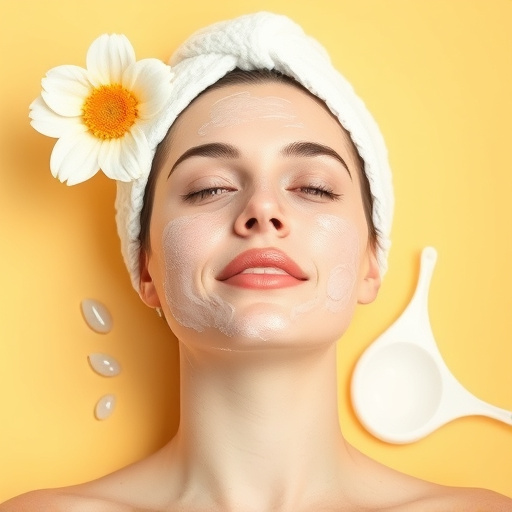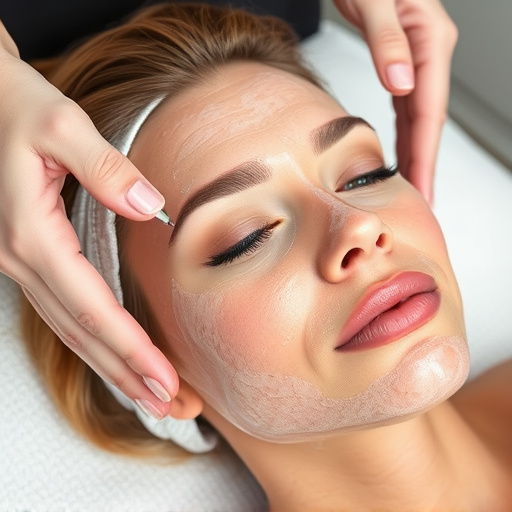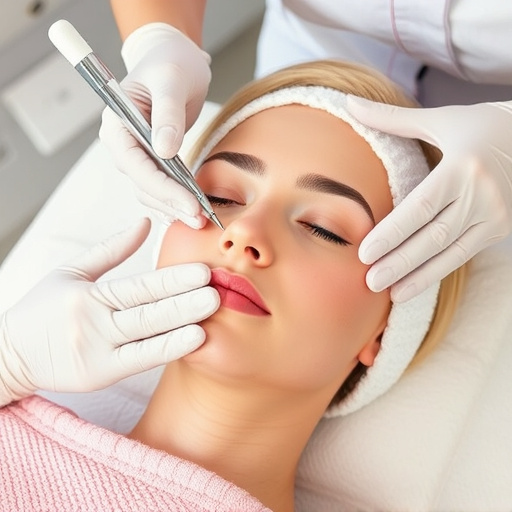Dermatologist-recommended anti-aging skincare involves personalized routines with tailored steps from cleansing to moisturizing. Key ingredients like retinol, vitamin C, peptides, Matrixyl 3000, and hyaluronic acid stimulate collagen production, reduce wrinkles, and provide hydration. Non-invasive procedures such as chemical peels and microneedling enhance skin texture. Consistent daily routines, including cleansing, toning, moisturizing, exfoliation, and laser hair removal, backed by scientific understanding, deliver optimal results for maintaining or restoring youthful-looking skin.
Uncover the secrets to achieving youthful skin with top dermatologist-recommended anti-aging skincare. This comprehensive guide delves into the science behind effective formulas, exploring key ingredients proven to combat signs of aging. From understanding the vital role of hydration to the power of antioxidants, you’ll discover a structured routine tailored for visible results. Embrace a glowing complexion by following these expert-vetted tips, designed to transform your skincare journey.
- Understanding Anti-Aging Skin Care: A Dermatologist's Perspective
- Key Ingredients and Formulas Backed by Scientific Research
- Incorporating a Routine: Tips for Effective Anti-Aging Skincare at Home
Understanding Anti-Aging Skin Care: A Dermatologist's Perspective
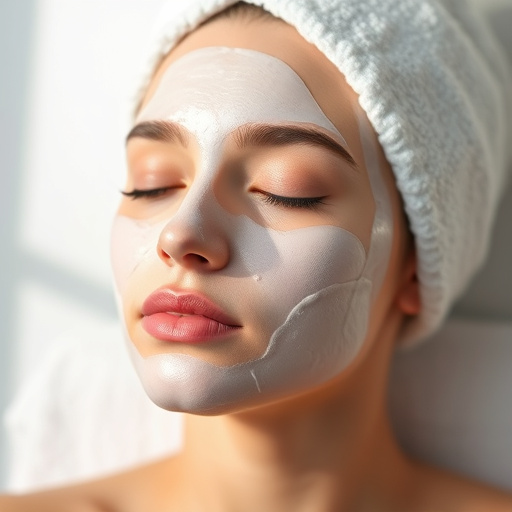
Anti-aging skincare is a complex topic, but with guidance from dermatologists, it becomes a powerful tool to combat signs of aging. A dermatologist’s recommended routines often involve personalized skincare strategies tailored to individual skin types and concerns. This approach ensures that each step, from cleansing to moisturizing, targets specific anti-aging goals. By understanding the science behind these treatments, we can make informed choices.
Dermatologists emphasize that anti-aging treatments should not only address visible symptoms but also protect and strengthen the skin’s barrier. Key ingredients like retinol, vitamin C, and peptides are often prescribed for their ability to stimulate collagen production, reduce fine lines, and even out skin tone. Additionally, non-invasive procedures such as chemical peels and microneedling can promote skin cell turnover and enhance overall texture, leaving skin looking firmer and more youthful. Personalized skincare, therefore, involves a combination of topical applications and targeted treatments for optimal results.
Key Ingredients and Formulas Backed by Scientific Research
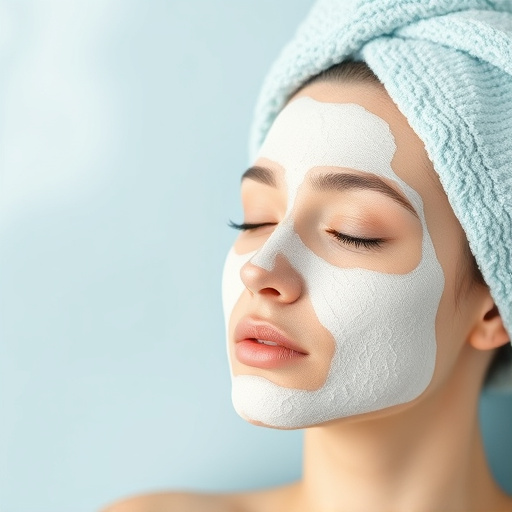
The quest for youthful skin has led many to explore dermatologist recommended anti-aging skincare products, backed by scientific research and formulated with key ingredients that work. These formulations often include powerful peptides, such as Matrixyl 3000, known for its ability to stimulate collagen production and improve skin elasticity. Hyaluronic acid is another standout ingredient, capable of holding up to a thousand times its weight in water, providing deep hydration for plump, radiant skin.
Additionally, non-surgical treatments like retinol, a derivative of vitamin A, are renowned for their effectiveness in reducing fine lines and wrinkles while uncloggings pores. Vitamin C, another scientific favorite, offers powerful antioxidant protection against environmental damage, brightening the complexion and promoting overall skin rejuvenation. These anti aging treatments, when incorporated into a consistent skincare routine, can yield noticeable results, making them go-to choices for those seeking to maintain or restore their skin’s youthful glow.
Incorporating a Routine: Tips for Effective Anti-Aging Skincare at Home
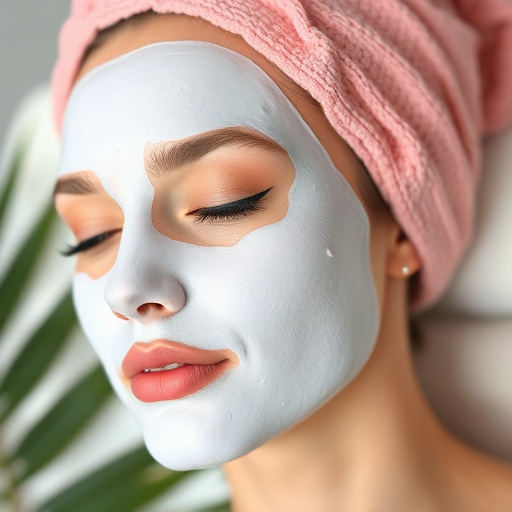
Incorporating a consistent skincare routine is key to achieving and maintaining youthful-looking skin. Dermatologists recommend committing to a simple yet effective daily regimen. Start by cleansing your face twice a day to remove impurities and excess oil, followed by toning to balance skin pH and hydration levels. A crucial step is moisturizing, which provides essential nourishment and protection against environmental stressors. Look for products with ingredients like hyaluronic acid and niacinamide, known for their hydrating and skin-brightening properties.
For anti-aging treatments, consider incorporating retinol at night. This powerful derivative of vitamin A stimulates collagen production and helps reduce fine lines and wrinkles. Additionally, regular exfoliation removes dead skin cells, revealing smoother, brighter skin. While laser hair removal might not directly contribute to anti-aging, it can enhance the overall appearance and texture of your skin by reducing unwanted hair, leaving it feeling softer and more supple.
When it comes to choosing anti-aging skincare, listening to a dermatologist’s advice is invaluable. By understanding the science behind key ingredients and incorporating a consistent routine, you can effectively combat signs of aging from the comfort of your home. Remember, a dermatologist-recommended regimen is the ultimate assurance that your skincare journey will be both productive and safe.









